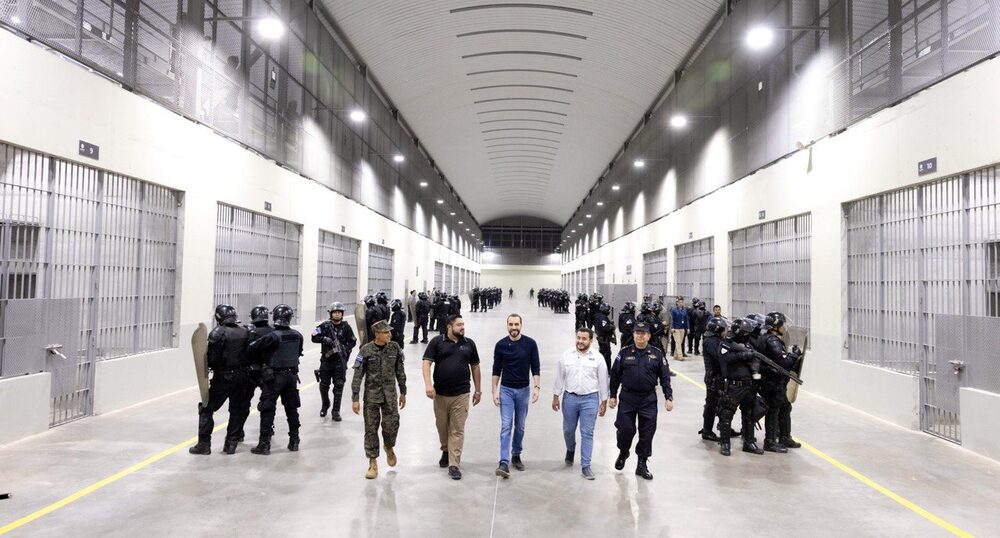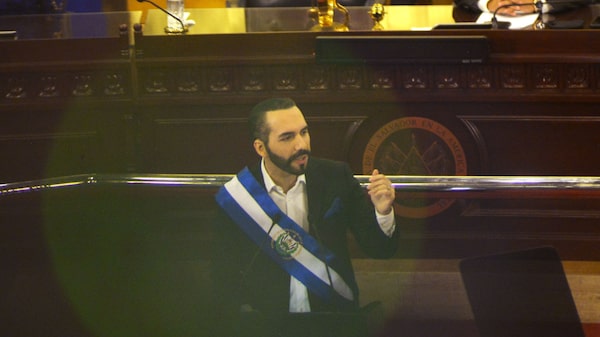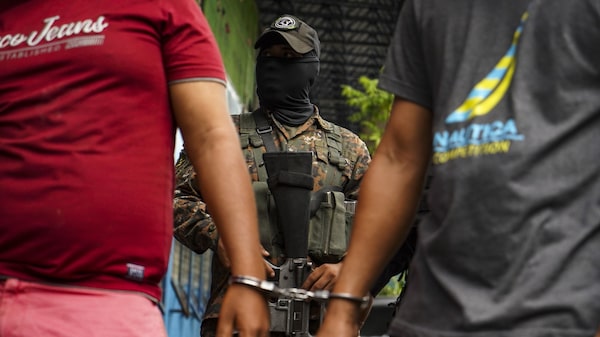Bloomberg Linea — Salvadoran President Nayib Bukele has celebrated the country’s 300-day streak without a single homicide, which is quite an achievement for a nation that during three days in March 2022 reported the violent deaths of 88 people.
“We have achieved 300 days without homicides! To put it in context, the previous government did not have a single day without homicides, and the one before that, only had one. One day, without homicides in 10 years. But thank God, we now live in a different country,” Bukele wrote.
El Salvador’s official statistics indicate that January 2023 was the safest month in the country’s 201-year history, with only 11 homicides recorded that month.
In a tweet on Feb. 14, Bukele claimed that the previous government saw zero days with no homicides, and the government prior to that only one day.
El Salvador has not been the only Latin American country affected by growing levels of violence, mainly stemming from gang activity. An analysis published by the United Nations in May 2022 showed that nine of the 10 countries with the highest number of murders per 100,000 inhabitants are in the Americas, and four of them are in Central America: El Salvador, Belize, Honduras and Guatemala.
What is happening in El Salvador?
In late March 2022, following a wave of violence and murders for which the government blamed the Mara Salvatrucha, a violent gang that has operated in the country for many years, Bukele declared war against the gangs and a ‘state of exception’ - which has been extended nine times since then - that has included the deployment of military and law enforcement to enter neighborhoods with a known gang presence.
The government claims that this “effective security strategy” has resulted in the capture of nearly 63,000 people, equivalent to 1% of the population, who have been labeled “terrorists” and imprisoned without trial.
Human rights organizations have questioned the actions of the Salvadoran state. The organization Cristosal has registered at least 102 deaths in custody during the state of exception, while Human Rights Watch obtained access to official data on 1,082 minors detained until August 2022 and other organizations report 4,500 complaints against the security forces.
The Movement of Victims of the Regime (MOVIR), composed of relatives of those imprisoned, has recorded several testimonies of people captured under this measure, which are shared on its Facebook account.
“He sold bread on a motorcycle. He spent almost nine months in detention and he didn’t look the same, he was very thin. At least they would have allowed his mother to see him alive when he was in the hospital to say goodbye to him. They would have told her that he was sick,” said a relative of Noé Alexander Rivera Vásquez, 23, who was detained at the Preventive Sentence Enforcement Center in Santa Ana and died in early February from respiratory complications, according to Medicina Legal.
Bukele recently unveiled the country’s sprawling Terrorism Confinement Center (CECOT) as part of his anti-gang plan, a mega-prison that has the capacity to hold 40,000 inmates and has “state-of-the-art technology” and strict security controls.

El Salvador shares its strategy with other countries
Bukele has made its experience with the Territorial Control security plan available to other countries, saying: “El Salvador will help Haiti, installing a cooperation office in that country, with the aim of reducing the high crime rates”.
“While other states are closing offices in Haiti due to high rates of violence, El Salvador will open one with the desire to help in the fight against criminal structures,” said Vice President Felix Ulloa, at the recent summit of the Community of Latin American and Caribbean States (CELAC) in Buenos Aires.
In a tweet on Feb. 16, Ulloa’s office outlined themes to be discussed during the country’s pro tempore presidency of the Central American Integration System (SICA), which starts in June 2023, and which include holding a forum on the country’s Territorial Control plan.
The vice president said that the state of exception does not violate human rights or suspend public liberties, only those of a judicial nature.
“The war against the gangs is based on the ‘Jus ad bellum’, which in International Law empowers the state to come to the defense of the people when they are attacked, and he pointed out that this is executed without bloodshed,” he said.





